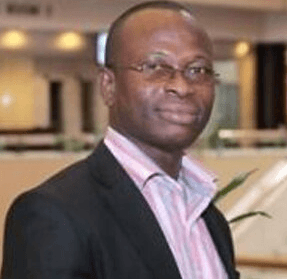Editors are as important to journalism as reporters – Dogbevi

Good journalism does not simply inform, it provides information that has meaning for people’s lives and holds the powerful to account. At a time when trust in the media is declining around the world, it has become even more important to provide content that is ethical, independent, critical and of public interest.
Providing such content is not merely the work of a reporter but involves the input of an editor. “Editors are as important to journalism in as much as reporters are,” says Emmanuel K. Dogbevi, the managing editor of the ghanabusinessnews.com.
Today, we read online publications, newspaper reports, as well as watch TV and listen to radio broadcast with many avoidable mistakes and errors and one would wonder if these reports went through an editorial process.
It is almost as if reporters are alone in the newsgathering and dissemination of information citizens need and can trust to make important life decisions and hold their decision-makers to account.
According to Mr Dogbevi who has been practising journalism for more than three decades, “The role of an editor is deeper than supervision. An editor should work with the reporter. He or she should be involved in the story the reporters do from the scratch. Provide guidance, direction and make inputs.”
In an online conversation with journalists across Africa during a ‘Journalism Hangout’ on Wednesday April 14, 2021 that discussed the roles of editors in the newsroom, he noted that editors are enablers of responsible, accountable and ethical journalism.
Some of the participants from Ghana and Liberia shared their not so pleasant experiences working with editors in their various newsrooms and some pleasant experiences too. Some shared experiences of instances where editors rejected stories that the reporters felt very confident about without any explanation whatsoever.
According to Mr Dogbevi, an editor should do the following:
Check for facts; check grammar; ensure the report fits the house style; establish the ethical standards of what news is, determine if the reports meet the standards as ascribed for journalism and ensure accuracy.
Editors ought to also get pitches of stories before reporters work on stories. They should have an eagle eye for details and be knowledgeable in subjects the reporters report on.
“The quality of a reporter’s final work is a function and reflection of the editor,” he said.
During the conversation, it emerged that, while editors, should be the final deciders of what passes for news, often media owners, managers and advertisers interfere with the decisions of the editor and choose what should be news.
“Every editor worth his or her salt should demand the authority to decide on what is news; that is the duty and responsibility of the editor who is trained for the job. In any case where the editor is influenced and manipulated by others, creating unfavorable conditions for ethical journalism, the editor ought to protest, and if that continues, as it has happened elsewhere, they should resign,” he said.
He urged the participants to be their own editors by learning the skills of an editor and applying them to their stories, to ease the burden on their editors whilst preparing to take up editorial roles in the future.
By Theodora Aidoo
Copyright ©2021 by NewsBridge Africa
All rights reserved. This article or any portion thereof may not be reproduced or used in any manner whatsoever without the express written permission of the publisher except for the use of brief quotations in reviews.
